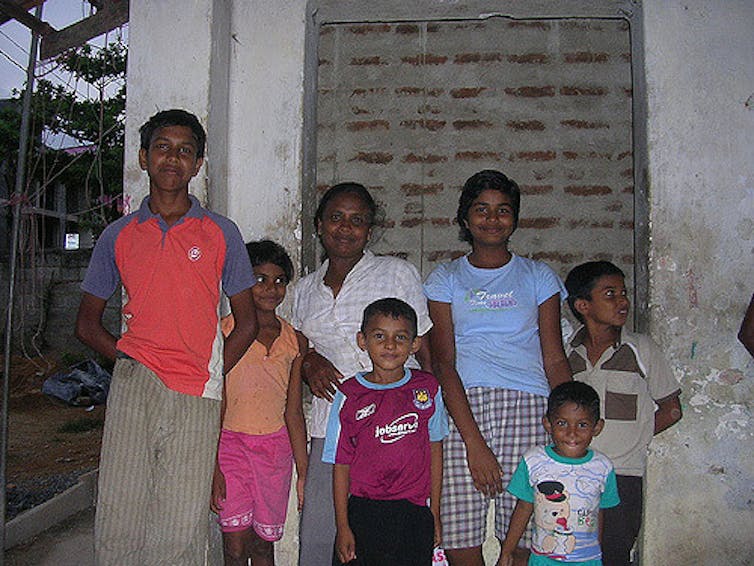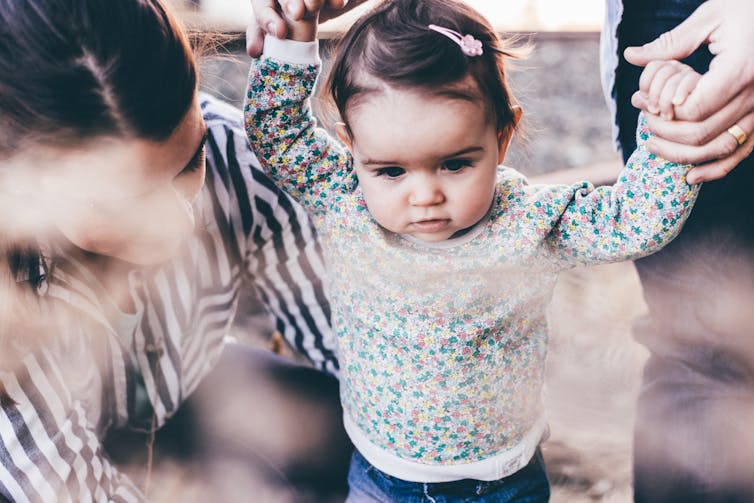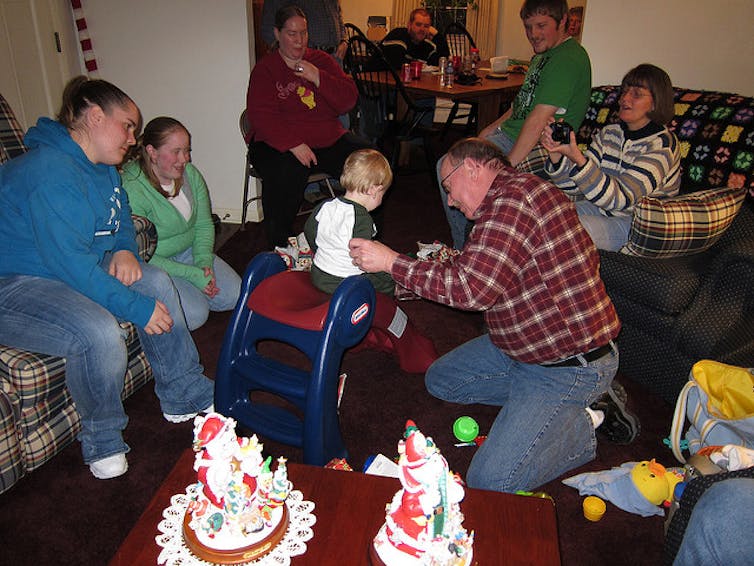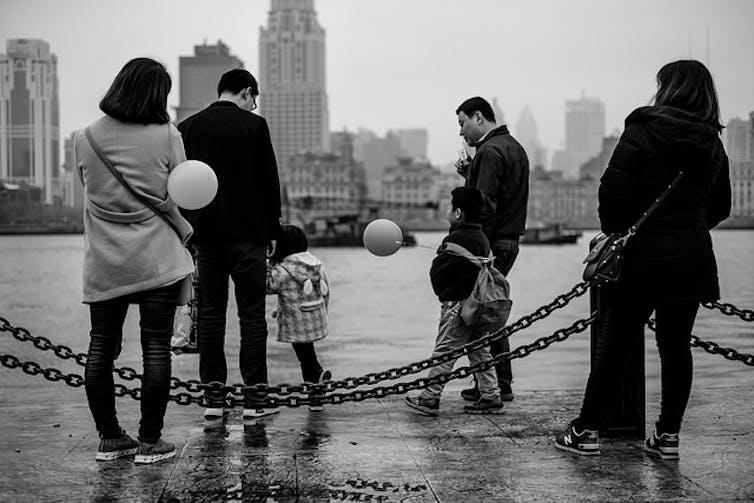August 21, 2018
What do your earliest childhood memories say about you?
Our childhood memories are intricately shaped by our family and culture.
We experience thousands of events across childhood, and yet as adults we recall only a handful. Some might be āfirstsā (our first ice cream, our first day at school), or significant life events (the birth of a sibling, moving house). Others are surprisingly trivial.
So, what do your earliest childhood memories say about you? Do they reflect your early skill for remembering, your interests, or your individual experiences?
The answer to all three questions is yes ā but this is not the whole story. Although we sometimes see memory as a video camera, recording our lives accurately and without bias, .
Instead, our childhood memories are intricately shaped by our family and culture.
Read more:

Our first memories
If you canāt remember life as an infant, youāre not alone.
As adults looking back to childhood, we cannot typically recall anything before . This phenomenon is known as .
Although some individuals report very early memories of being walked in their pram as a baby, or falling asleep in a cot, these memories are likely to be .
One of the most important developments for the onset of memory is language. Research shows that language is needed not just for sharing our experiences, but for encoding them.
For example, young children a fictional āmagic shrinking machineā could only recall this one year later if they had the appropriate vocabulary at the time of the event.

We also know that bilingual adults who immigrated as children recall early memories they spoke at the time the memory was formed.
In addition to language, children a coherent sense of self, or of āwho I amā. This emerging development allows them to pin events to a personal story that is continuous across time. The sense that āthis happenedā develops into a deeper understanding that āthis happened to meā.
Read more:
Family factors
While the development of language and sense of self enable our earliest childhood memories to form, family factors shape their contents.
Within families, parents reminisce with their children multiple times a day ā reliving family holidays, for example, or bonding over sibling hijinks, or reflecting on past transgressions to discuss the lessons learned. Interestingly, however, there are strong individual differences in the way they do so.
Some parents use a : asking questions and providing event detail and structure in a way that scaffolds and encourages the childās own contribution. Others are less elaborative.
Some parents also focus particularly on (āShe was really sad! Why did she start crying?ā), while others focus more on factual details.
These individual differences have important implications, with children eventually coming to adopt the personalised style of their parents: first during reminiscing conversations, and later in their .
Read more:
What style of parent are you?
Hereās an example of a conversation between a highly elaborative mother and her pre-school aged child.
Mother: You and Daddy put the Christmas tree up together, and then you put on decorations! What decorations did you put on?
Child: Umā¦ the Christmas balls!
Mother: Thatās right! Daddy bought Christmas balls and stars to hang on the tree. What colours were they?
Child: Red and gold.
Mother: Red and gold. Pretty red balls, and gold stars.
Child: And there was the paper circles too.
In contrast, below is a conversation between a less elaborative mother and her preschool aged child.
Mother: Iām going to ask you about your preschool Christmas concert. Was that good?
Child: Yeah
Mother: What happened there?
Child: Dad came
Mother: Yes, but what happened?
Child: I donāt know.

Broader family structures and experiences also play a role. In Italy, children growing up in intergenerational households tend to have both than children growing up in traditional nuclear families. This probably occurs due to more opportunities to engage in rich and elaborative reminiscing conversations.
In contrast, parents and children experiencing depression may show a tendency for āā ā that is, difficulty recalling specific memory details. Poorer quality parent-child reminiscing to overgeneral memory among three- to six-year-olds.
Read more:
Cultural factors
Just as our earliest childhood memories reflect our reminiscing conversations with our parents and our overarching family experiences, they also appear to reflect broader cultural practices and norms.
Consistent with the āindividualistā values of Western culture, earliest childhood memories are typically long, specific and self-focused.
Consistent with the ācollectivistā values of Chinese culture, Chinese studentsā earliest childhood memories are typically brief, and more likely to reference social responsibilities.

American mothers are also than Chinese mothers to focus on their childās own personal emotional experiences when remembering together, and it is likely that these early parent-child conversations serve as a mechanism for imparting cultural norms.
Read more:
In New Zealand, where MÄori culture includes a rich oral tradition in which stories are shared across generations, MÄori mothers have been found to to PÄkehÄ (European New Zealand) mothers about important life events. When talking with their children about their own birth stories, for example, MÄori mothers include more elaborations, more references to emotion, and more references to relational time.
Interestingly, MÄori also have the earliest average age of first memory on record. At 2.5, these earliest memories occur a full year earlier than in some other groups.
So the research is clear: our earliest childhood memories are intricately shaped by our experiences within our own families and cultures.
![]()
The process of memory formation is nothing like a video camera.
, Senior Lecturer in Educational Psychology, ; , Lecturer Clinical Psychology, , and , Lecturer in Early Childhood,
This article was originally published on . Read the .
UOW academics exercise academic freedom by providing expert commentary, opinion and analysis on a range of ongoing social issues and current affairs. This expert commentary reflects the views of those individual academics and does not necessarily reflect the views or policy positions of the ¾«¶«“«Ć½ of ¾«¶«“«Ć½.
:format(jpg)/prod01/channel_3/assets/live-migration/www/images/content/groups/public/web/media/documents/mm/uow250660.jpg)